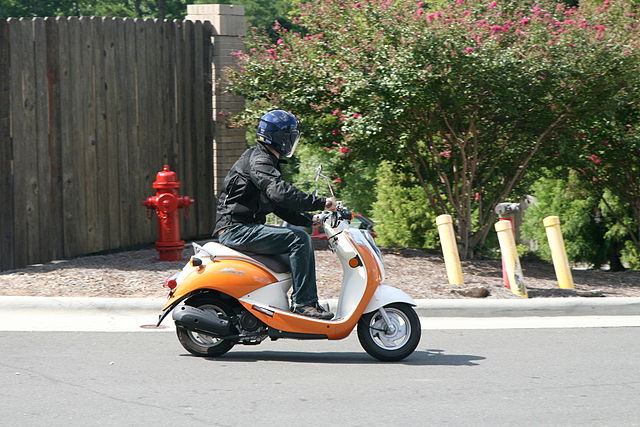 My Virginia Beach-based personal injury and wrongful death law firm colleagues and I do not often comment on moped crashes. When we do, however, it is usually because a negligent or reckless driver has hit and severely injured or killed a rider.
My Virginia Beach-based personal injury and wrongful death law firm colleagues and I do not often comment on moped crashes. When we do, however, it is usually because a negligent or reckless driver has hit and severely injured or killed a rider.
Mopeds become more common each day. They offer many of the thrills and much of the versatility of motorcycles at much lower costs and while requiring far less skill to operate. Shared rental mopeds have also joined electric scooters and bicycles on several cities’ curbsides.
LEARN MORE
- A Virginia Beach Motorcycle Accident Injury Attorney Walks You Through the Insurance Claims Process
- Bicycle Accidents and Virginia Right of Way Laws
- Who Can File a Wrongful Death Claim in Virginia?
With increased use comes higher risks for crashes. And that is where we come in. Every moped rider must know where, when and how they can operate in Virginia. It will also help them to know how they or their families can hold drivers accountable for causing serious and deadly wrecks.
How Much Danger Do Virginia Moped Riders Face?
State DMV official recorded 318 moped crashes during 2019. Those wrecks killed 13 people and injured another 278 individuals. The five leading causes for the collisions caused by drivers of passenger vehicles were following too closely, failure to yield, improper lane change, “ran traffic control” and “speed too fast.” In other words, moped riders face deadly dangers from tailgating drivers, drivers who do not yield while turning and drivers who fail to check their blind spots.
Who Can Ride, and Where Can They Do So?
To legally operate a moped in Virginia, a person must
- Be at least 16 years old,
- Hold a valid government-issued ID (but not necessarily a driver’s license),
- Stay off the interstate,
- Keep under 35 mph, and
- Only ride while sober. A moped rider can get charged with driving while intoxicated.
State laws treat mopeds as both motorcycles and bicycles. For instance, riders can use any surface road or state highway, but they are also encouraged to keep to the right. Similarly, moped riders are required to wear helmets. If a moped lacks a windshield, the rider must put on goggles or safety glasses.
When Does a Moped Rider Have Grounds for Filing Insurance Claims Following a Crash?
A driver who clearly causes a collision that injures or kills a moped rider can be held responsible for compensating the victim of their negligence or recklessness. To succeed with an insurance claim or lawsuit, the moped rider must prove that
- Nothing they did significantly contributed to causing the crash,
- They sustained injuries as a direct result of the crash, and
- Medical treatment for the crash-related injuries was required.
Interestingly, an insurance claim or lawsuit cannot be thrown out solely because a moped rider was not wearing a helmet.
How Can Moped Riders Lower Their Risks?
Allow us to share these three tips from the Virginia DMV:
- Be observant. Keep an eye on your surroundings. Make sure you have both side mirrors and angle them so you can see the most possible area behind you. It is against the law for any person to operate a moped while using earphones on or in both ears.
- Ride defensively. Do not be aggressive; mopeds are smaller than most other vehicles sharing the road. Night riding is not recommended. However, if you must ride at night, wear bright colored clothing, reflective strips on your jacket and your helmet, and keep your headlight in good working order.
- Take a training course. Many driver training schools in Virginia offer courses specific to mopeds. Contact a Virginia Rider Training Program location to find out if it offers moped training courses.
We will add that car and truck drivers much also watch for and respect moped riders.
EJL